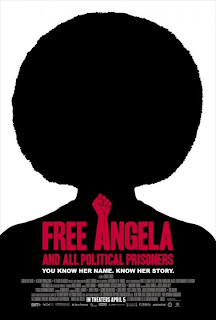 Image courtesy of Amos Mac of OP Magazine and janetmock.com.
Image courtesy of Amos Mac of OP Magazine and janetmock.com.
If I didn’t define myself for myself, I would be crunched into other people’s fantasies for me and eaten alive. ~ Audre Lorde
There is freedom in knowing ourselves and defining ourselves for ourselves. There is freedom in living in our light and telling our stories–oft stories that need to be told. When we allow ourselves to be defined by others, our lives are muted, shortchanged, and disregarded. There is no power like that of naming yourself and claiming your truth. This is what Janet Mock has done and continues to do as a fierce writer, advocate, and creator of #GirlsLikeUs, a movement which encourages trans women to live their lives openly and visibly.
In late February, I had the opportunity to attend an intimate talk by Janet Mock at the Martin Luther King Jr. Memorial Library in Washington, DC. This event was part of a book tour in support of Mock’s New York Times bestselling book Redefining Realness: My Path to Womanhood, Identity, Love, and So Much More. The ever-engaging Helena Andrews, journalist, pop culture critic, and author of Bitch Is The New Black, facilitated the talk.
In 2011, Mock came out as a trans woman in the misgendered Marie Claire article, “I Was Born A Boy.” At a very early age, Mock knew what her identity was and that it did not match the sex she was assigned at birth. She always knew she was a girl, even though the world tried to refute, devalue, and silence her true identity through gender policing, heteronormativity, and transphobia. It was a struggle, but Mock was adamant about who she was and was determined to live her life authentically. In no truer words, Michaela Angela Davis told Mock, “You got your girl. You saw who you were and you got her.” And that she did!
Aside from an affirming family, Mock credits community as being pivotal in her path to womanhood. In seventh grade she met her best friend, Wendy, who was also a young trans woman. Mock says Wendy connected her with a community of older trans women who she bonded with. Through them she had examples of what trans womanhood was, which further shaped her identity and what she wanted her womanhood to be.
It was in this community that Mock says other trans women began calling her “Baby Janet” because of an uncanny resemblance to Janet Jackson. During this time, Mock admits being completely enamored with Jackson’s critically acclaimed album The Velvet Rope. The Velvet Rope is a collection of deeply introspective songs, many of which unveiling pain that Jackson held inside for many years. The album touched on depression, self-love, self-worth, sexuality and social issues like homophobia and domestic violence. Mock saw many parallels between Janet’s heartfelt music and her own life. So how fitting is it that she, too, would ultimately name herself Janet.
During the talk, Mock also discussed the notion of privilege and “passing.” In this society, we often place too much emphasis on beauty and attractiveness. Often times, beauty can overshadow a person’s skills, gifts, talents, and experiences. Mock acknowledges privilege in being attractive, but she does not let that define who she is. She says, “I do the work. I will not let people reduce me to a pretty face.” Mock also scoffs at the notion of passing, for she is a woman who is simply being herself.
When it comes to telling your story, Mock says you have to do it first and foremost for yourself. Tell yourself the truth about your experiences. She recommends finding someone you trust to share your story with. When you feel ready, share the story publicly. For young trans women, she says “Shut out all the noise. Tap into your own truth. Find your advocates.” For many of us, it’s crucial that we find our families in the spaces we’re in.
As her journey continues, Mock hopes that her work speaks for itself and that her story is one that opens minds, shifts language, and inspires others to be their authentic selves. When asked by Marc Lamont Hill on HuffPost Live about the message she hopes people take away from Redefining Realness, Mock said, “I think my biggest thing would be to empower girls who grew up like I did. To give them language and access to explain and understand their experiences. For so long, I…blamed myself for a lot of the hardships that I went through and I would like to free them from that. And I hope that the book frees a lot of people to understand these issues more.”
And what can we expect from Mock in the future? More writing, of course. She’s planning to write a book which addresses the beauty myth from the perspective of a black trans woman. She’s also looking into TV as another platform for storytelling.
Janet Mock, thank you for doing the work. Thank you for being the beautiful spirit that you are and for sharing your powerful story with us. Trailblazer, keeping shining!
I believe that telling our stories, first to ourselves and then to one another and the world, is a revolutionary act. It is an act that can be met with hostility, exclusion, and violence. It can also lead to love, understanding, transcendence, and community. I hope that my being real with you will help empower you to step into who you are and encourage you to share yourself with those around you. ~ Janet Mock


.jpg)
.png)
.jpg)
.jpg)




